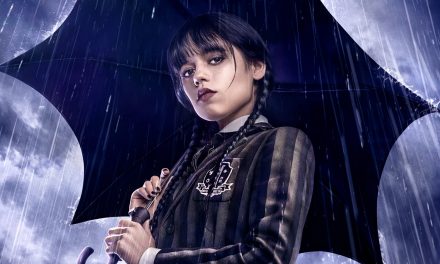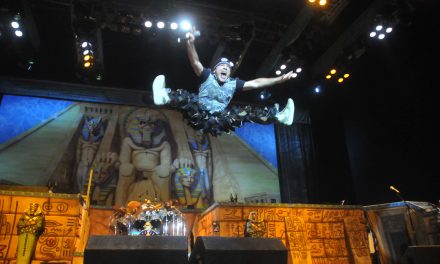In this prequel to Netflix’s The Witcher series, Blood Origin cements itself in history and mythology and proves that the universe can exist beyond Geralt.
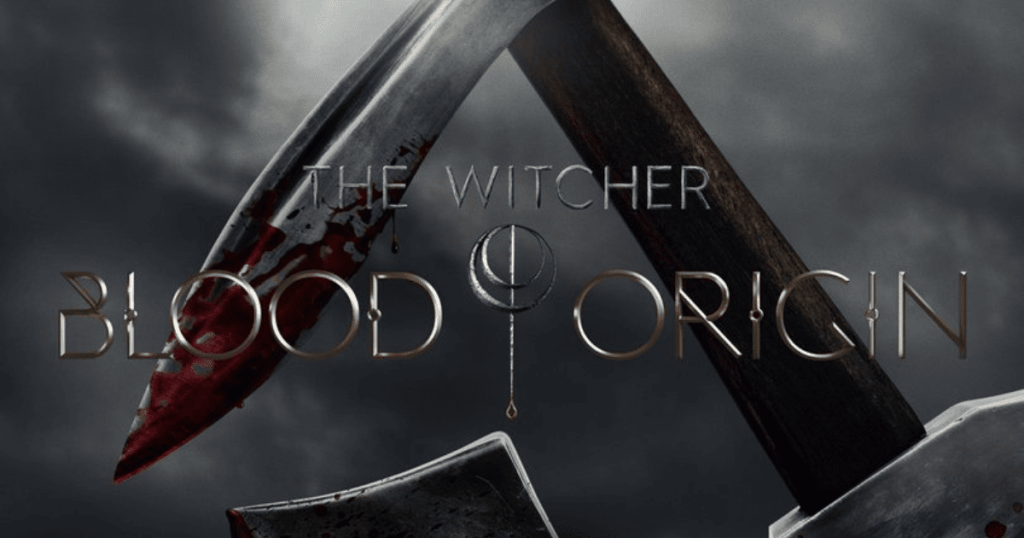
THE POWER OF STORIES
“Control a story, control the world.” The power of stories, songs, and bards, is the central tenant to Netflix’s limited series; The Witcher: Blood Origin. This is quite fitting for a series that expands the history and mythology of Andrzej Sapkowsi’s book series. Taking place 1200 years before the events of The Witcher, Blood Origin tells the story of seven resistance fighters who take on the tyrannical elven kingdom of Xin’trea, at the height of the Golden Age of the elves.
The show not only gives viewers a glimpse of elven society before the arrival of humans and monsters but explains the creation of the first proto-Witcher. All of the events in the four-part series leading up to the Conjunction of the Spheres – whereby multiple worlds and races collide; bringing chaos magic, monsters, and humans to the Continent, leading to the world we find Geralt, Ciri, and Yennifer in.
While many fans and critics have been unhappy with how the first two seasons of The Witcher deviated from Sapkowski’s beloved novels, Blood Origin is able to tell its story without the hindrance of source material by which to compare it to. Fans of The Witcher and those who have no knowledge of the show or the books will enjoy Blood Origin.
It is a rich fantasy world with epic battles, fantastic production design and costumes, compelling CGI, and of course, stellar acting. There are numerous Easter eggs for those who love The Witcher, including a cameo by our favorite bard Jaskier (Joey Batey). Guided and narrated by the mysterious shapeshifting, time-traveling Seanhai (Minnie Driver), Jaskir’s presence, though brief, will most certainly impact the events of season three of The Witcher.
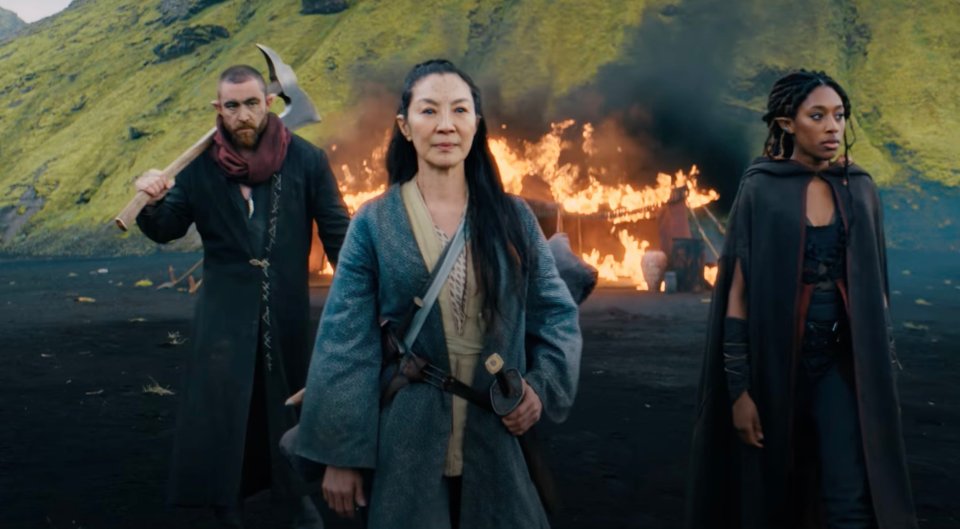
THE SONG OF THE SEVEN
As I said at the beginning, the heart of the show is the power of stories and their ability to inspire and unite people. All great stories must have compelling characters. Blood Origin gives us that in spades. Our band of seven is led by the fighter turned nomadic musician Élie aka The Lark (Sophia Brown), formerly of the Raven Clan. She quickly meets up with her one-time nemesis, the Xin’trean guard Fjall (Laurence O’Fuarian) of the Dog Clan. The two realize that, in order to survive and seek revenge on those who destroyed their clans, they must band together.
They go in search of the greatest sword fighter on the Continent the hermit Scian (Michelle Yeoh), the last of her Ghost Clan. The small posse makes their way toward the Xin’trean capital, in order to take down, Merwyn (Mirren Mack), and her power-hungry Chief Druid Balor (Lenny Henry), they pick up a few more friends. The hilariously vengeful dwarf Meldof (Francesca Mills) and her hammer Gwyn along with the celestial twin mages Syndril (Zach Wyatt), Zacaré (Lizzie Annis), and her lover Brother Death (Huw Novelli).
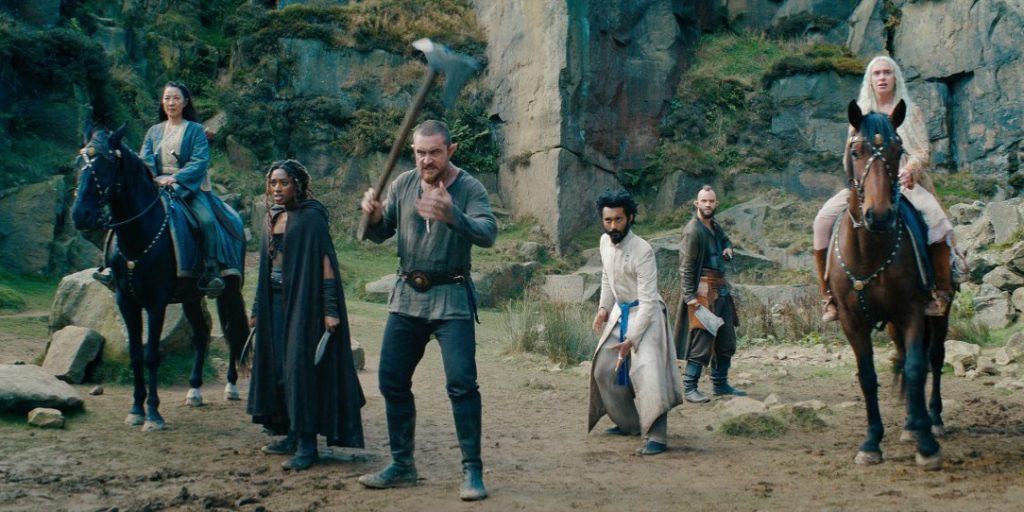
This is one of the best casts I’ve seen in a modern fantasy series (no offense to Rings of Power and House of the Dragon). Each actor is spectacular in their own right and together they are a force to reckon with. Brown’s Élie not only demonstrates her skill with a knife but also shows that sometimes a song can be more powerful than a blade. If this was D&D, she would have unlimited bardic inspiration. Brown deftly shows the struggle between wanting to forge a new path and being pulled back into her old life. She also has power and charisma on the screen that is quite fitting for this deadly bardic leader. Fjall has one of the most compelling arcs in the show and O’Furian handles it with palpable emotion and passion.
Fjall and Élie find a way to overcome their warring clans’ pasts and forge a powerful path forward that will ultimately change the world. I might be a little biased but will readily admit that Michelle Yeoh is one of my favorite actors of all time and I’ve followed her career since the early 1980s. Yeoh’s Scian has elements of her breakout (at least in the US) role as Yu Shu Lien in Crouching-Tiger Hidden Dragon. Though older now, Yeoh expertly portrays the role of a fierce warrior and mentor to the rest of the group. Mills’ Meldof was definitely one of the highlights of the series.
Her comedic and slightly unhinged personality paired with her lust for blood was a joy to watch, especially when she would have conversations with her hammer Gwyn. Annis, Curtis and Novelli round out the party and are compelling in their own right. The relationship between Zacaré and Syndril as celestial twins was powerful and the love between Zacaré and Brother Death was tender and compelling.
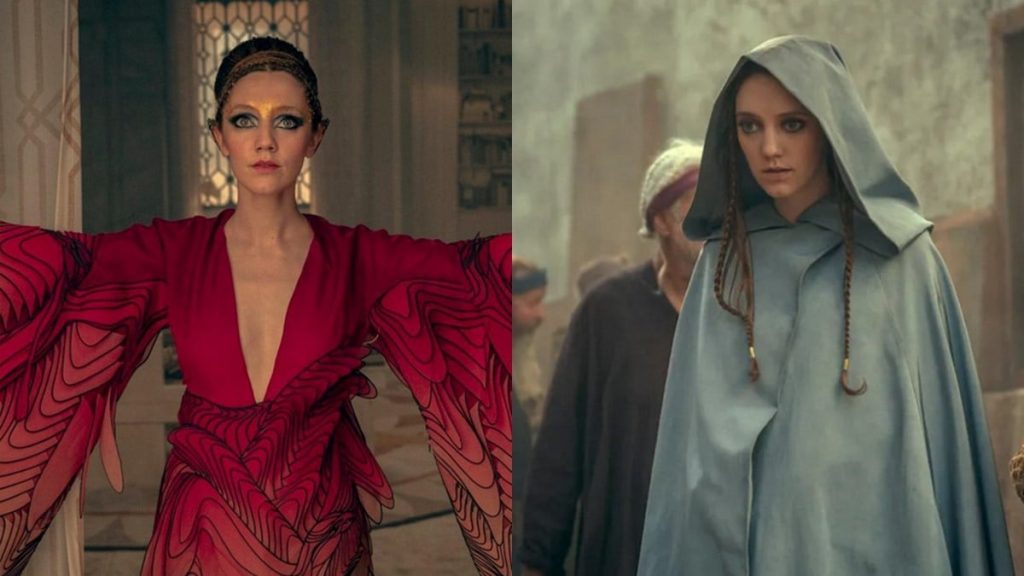
THE XIN’TREAN EMPIRE
Now the opposition. Princess turned empress Merwyn could have easily fallen into the evil queen cliche, but the creator gave her a rich character that the audience can’t help but empathize with. She expresses similarities to The House of Dragon’s Princess Rhaenyra (Milly Alcock), a brilliant young woman tired of living under the thumb of her male guardian and wanting to live her own life. Mack brings youthful energy and vulnerability to the role with an underlying strength.
While her intentions may have been good, she becomes a puppet of yet another power-hungry man, the low-born, yet immensely powerful mage Baylor. Henry plays the role with a seething undercurrent as he ruthlessly strives to become the most powerful mage in the land. Beyond just the lead actors, all the supporting cast members are just as compelling. There is not a single weak link in the cast and each character has a purpose. The show is also an example of diversity done right. The natural non-political representation of people from all walks of life makes the world even more believable.
A CONJUNCTION OF TALENT
The actors, while talented in their own right, have the benefit of a beautifully nuanced script. Creator Declan De Barra (who wrote two episodes of The Witcher) brings a knowledge of the world of The Witcher, but was able to create a wholly new universe based on mere breadcrumbs drooped by Sapkowski in his books. He gave us a cast of characters with depth and flaws, a political conflict that is compelling yet not overwhelming, and the ability to deftly craft intimate small moments and sprawling epic events. In the hands of directors Vicky Jewson and Sarah O’Gorman, Blood Origin became a beautiful piece of synergistic entertainment.
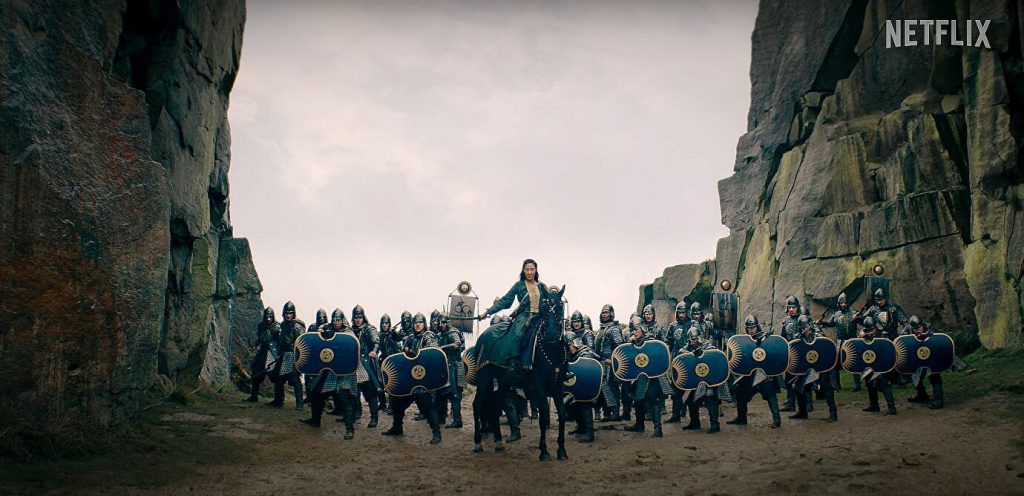
A WORLD BEYOND GERALT
Like many others out there, I was devastated to hear that Henry Cavill will depart The Witcher after season three. He will be replaced by Liam Hemsworth. I will withhold judgment until I see Hemsworth in the white wig. I’m not holding my breath that he will be able to step into the very large boots left behind by Cavill. Because of this, Blood Origin was a breath of fresh air. It proved that the universe of The Witcher can exist beyond Geralt. I’ll even go so far as to say I think it’s better than the original Witcher; which is a bold statement considering just how much I love that series.
I know that Blood Origin is a limited series, but I hold out hope that perhaps Netflix will return to this world and follow the events immediately following the Cataclysm. The show ended with a major reveal and I for one would love to see what happens next. And we all know (well, those of us who have read the books) that Ciri will eventually become a time traveler, so there could be numerous opportunities to tell stories in the world of The Witcher that don’t involve Geralt.
The Witcher: Blood Origin drops on Netflix on December 25th.

![THE WITCHER: BLOOD ORIGIN IS A CONJUNCTION OF TALENT [REVIEW]](https://thathashtagshow.com/wp-content/uploads/2022/12/witcher-1200x640.jpg)


